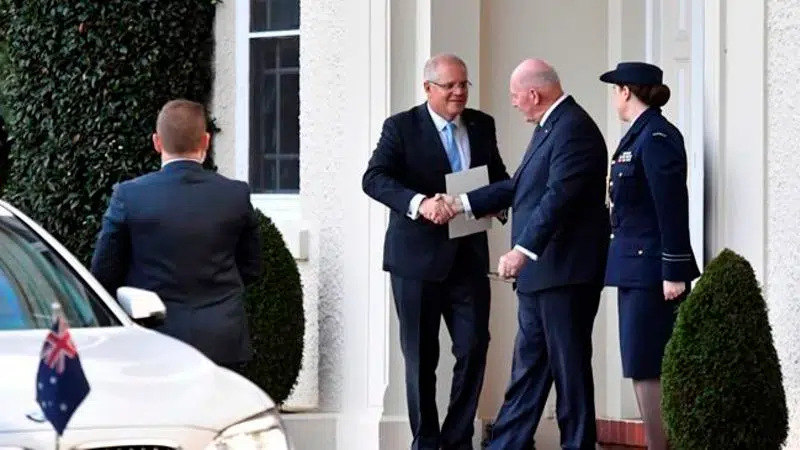
Australian prime minister expected to call May 18 election
CANBERRA, Australia — Australia’s prime minister on Thursday called for a May election that will be fought on issues including climate change, asylum seekers and economic management
Prime Minister Scott Morrison advised Governor-General Peter Cosgrove as representative of Australia’s head of state, Queen Elizabeth II, to set the election date.
Morrison is expected to announce later Thursday that Australia will go to the polls on May 18.


